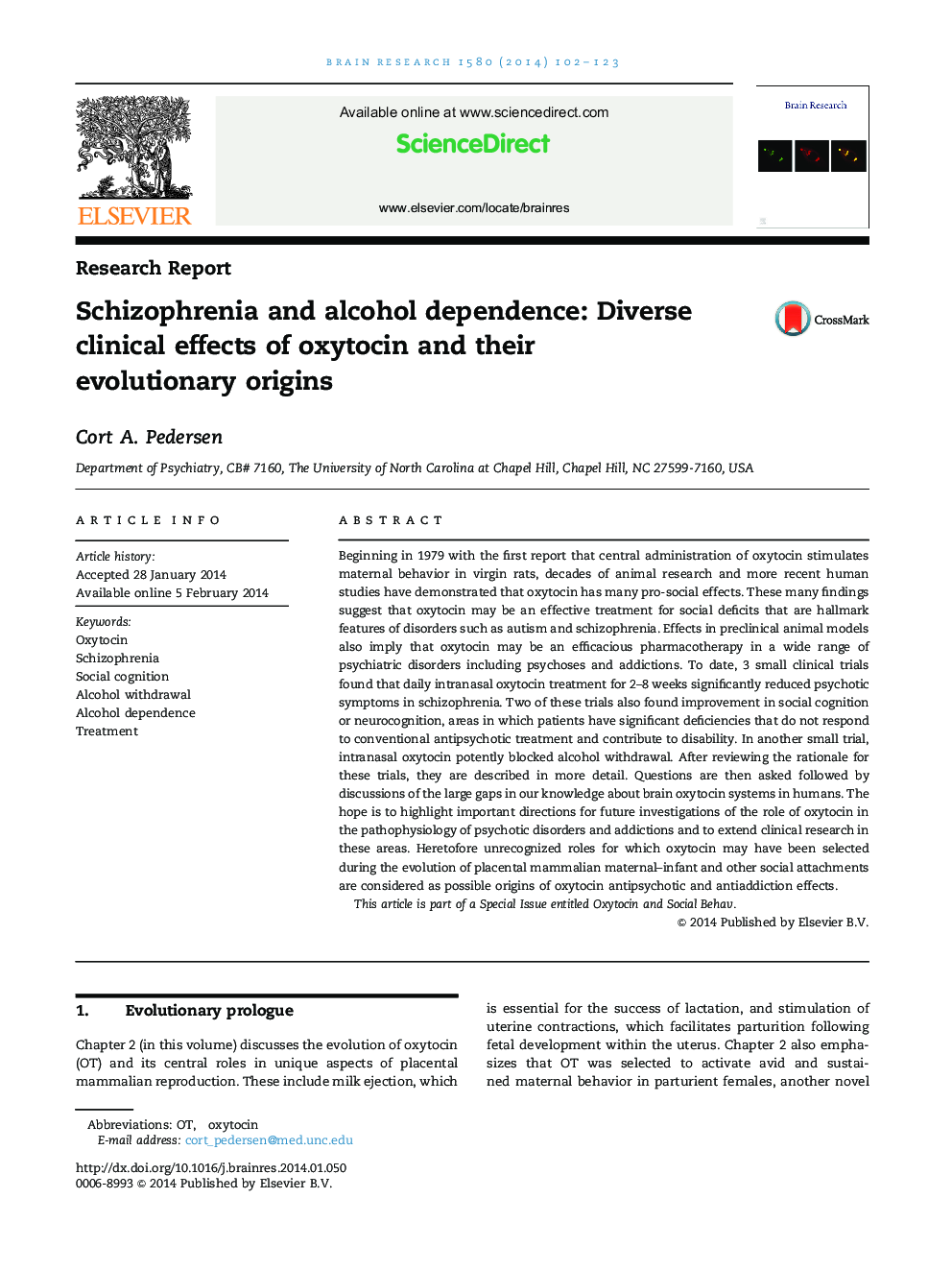| کد مقاله | کد نشریه | سال انتشار | مقاله انگلیسی | نسخه تمام متن |
|---|---|---|---|---|
| 4324124 | 1613859 | 2014 | 22 صفحه PDF | دانلود رایگان |
• Three clinical trials of oxytocin treatment of schizophrenia are reviewed.
• One trial of oxytocin treatment of human alcohol withdrawal is reviewed.
• The rationales for and implications of these studies are discussed.
• Important directions for future research in these areas are discussed.
Beginning in 1979 with the first report that central administration of oxytocin stimulates maternal behavior in virgin rats, decades of animal research and more recent human studies have demonstrated that oxytocin has many pro-social effects. These many findings suggest that oxytocin may be an effective treatment for social deficits that are hallmark features of disorders such as autism and schizophrenia. Effects in preclinical animal models also imply that oxytocin may be an efficacious pharmacotherapy in a wide range of psychiatric disorders including psychoses and addictions. To date, 3 small clinical trials found that daily intranasal oxytocin treatment for 2–8 weeks significantly reduced psychotic symptoms in schizophrenia. Two of these trials also found improvement in social cognition or neurocognition, areas in which patients have significant deficiencies that do not respond to conventional antipsychotic treatment and contribute to disability. In another small trial, intranasal oxytocin potently blocked alcohol withdrawal. After reviewing the rationale for these trials, they are described in more detail. Questions are then asked followed by discussions of the large gaps in our knowledge about brain oxytocin systems in humans. The hope is to highlight important directions for future investigations of the role of oxytocin in the pathophysiology of psychotic disorders and addictions and to extend clinical research in these areas. Heretofore unrecognized roles for which oxytocin may have been selected during the evolution of placental mammalian maternal–infant and other social attachments are considered as possible origins of oxytocin antipsychotic and antiaddiction effects.This article is part of a Special Issue entitled Oxytocin and Social Behav.
Journal: Brain Research - Volume 1580, 11 September 2014, Pages 102–123
